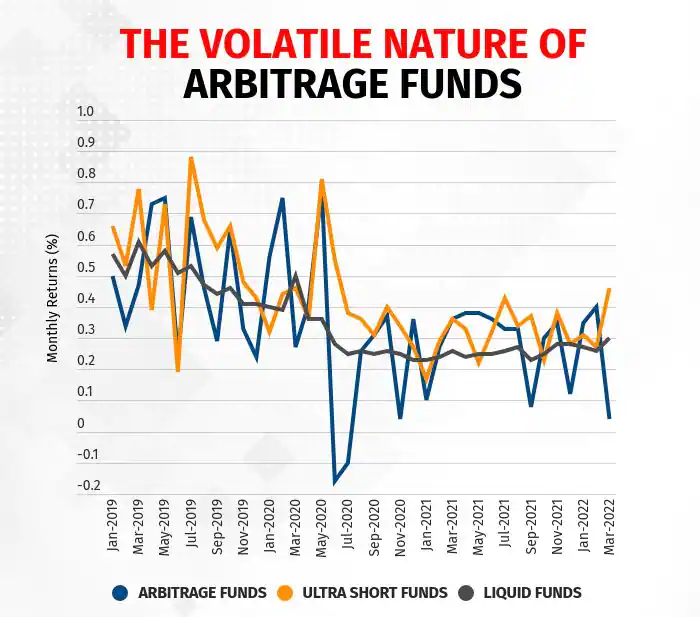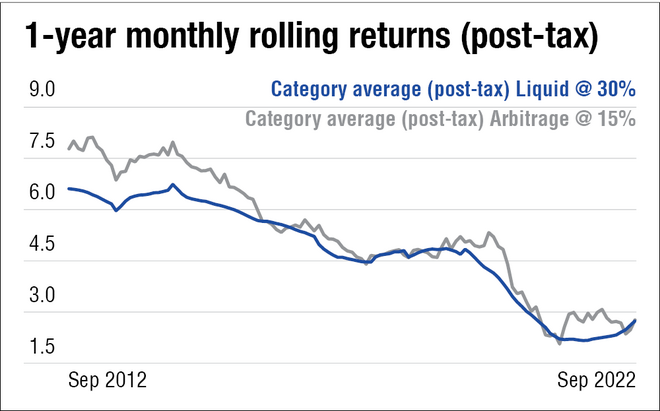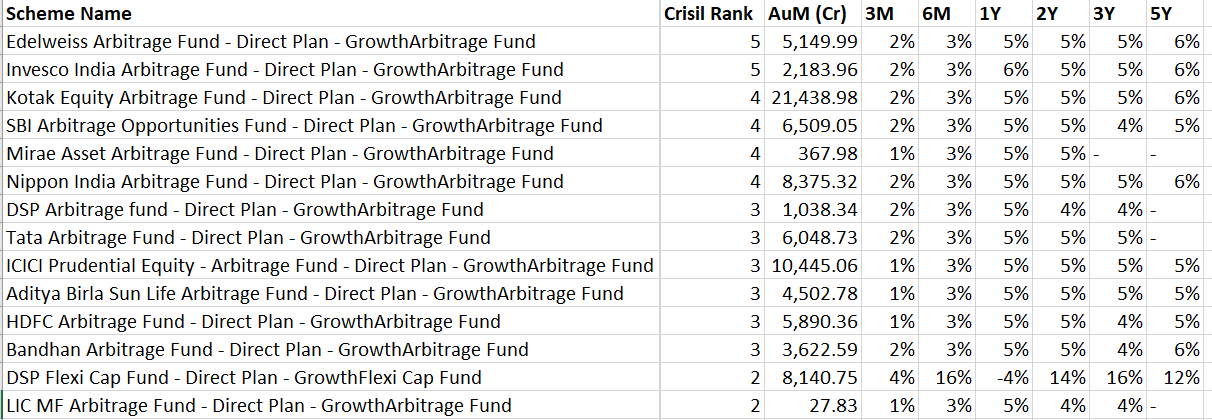WHAT ARE ARBITRAGE FUNDS?
Arbitrage funds are types of mutual funds that leverage the price differential in the cash and derivatives market to generate returns. The returns are dependent on the volatility of the asset. These funds are hybrid in nature as they have the provision of investing a sizeable portion of the portfolio in debt markets.
After seeing a huge outflow for a category with assets under management of Rs 81,384 crore of Arbitrage funds, the net redemptions stood at Rs 20,548 crore in the months ended August 31, 2022.
But in the regime of rising interest rates, the arbitrage funds are seen becoming more favorable in late 2022 and early 2023, as most of the time spreads of these funds move in line with short-term interest rate fluctuations in the economy.
As interest increases in the stock market with indices touching all-time highs there is greater participation from institutional and retail investors in the F&O segment, leading to higher volatility, and demand for money, thereby pushing up returns.
As interest rates moved higher, yield to maturity has jumped from 4 percent to almost 6.5 percent. This will also benefit these funds as fixed-income investment accounts for 30 percent of arbitrage funds.
These funds captured a spread of 7-8 percent in December, which is much better than liquid funds in the current scenario. This involves minimal risk since:
- the equity exposure of these funds is completely hedged and unlike liquid funds as the fund manager creates a market-neutral position by buying in the cash market and simultaneously selling the same security in the futures market.
- there is no credit risk in these funds, unlike in debt funds.

The more spread between the cash and the future market, the more is the return from the arbitrage.
RISK AND RETURN CHARACTERISTICS OF ARBITRAGE FUNDS
These funds are mainly used for short-term investment periods (from 3 months to 15 months), and the profit earned in arbitrage funds is mainly determined by the spread between the derivatives (futures) market and the equity market. Due to the derivatives market being extremely speculative, the spread is usually determined by the sentiment of the market. Hence, arbitrage funds are more volatile than usual funds.
Now, arbitrage funds perform and give better returns in a highly volatile and bullish market, which are both currently the characteristics of the market, making it absolutely one of the right times to enter this market.
In Arbitrage funds, the short-term capital gains on units held for less than one year are taxed at 15 per cent, and the long-term capital gains, are taxed at 10 per cent, the average return post-tax is higher than liquid or debt funds, which operate at higher tax brackets.
Over the past one year, the Arbitrage funds have given an average return of around 3.94%, and a return of 4.61% over the last five years.
WHICH ARBITRAGE FUND TO INVEST IN?
We have handpicked some of the best-performing Arbitrage funds for you to invest in 2023 and made a list of all of them to make it convenient for you guys.
These funds are arranged on the basis of the highest CRISIL ratings, and consistency of high returns, which indicate that these returns were not seasonal and they have been giving substantial returns for the last 5 years.






